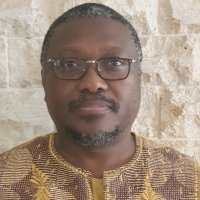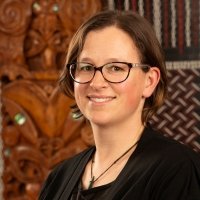Directions in Antarctic Diplomacy
France will host the annual meeting of the Antarctic Treaty Consultative Parties from June 14-24, 2021. At that meeting, key countries active in the Antarctic will discuss a range of issues related to environmental protection, climate change, polar science, tourism and governance. Please join us for a discussion with senior officials from key Antarctic Treaty states about current issues in Antarctic diplomacy and the future of the Antarctic Treaty System.
Selected Quotes
Ambassador Olivier Poivre d’Arvor
- "We are deemed to achieve a successful session this year…because our joint interest is to demonstrate that the Antarctic Treaty, and the whole system around it, remain efficient and relevant. Our mission in 2021 is to be up to what our predecessors created 60 years ago…that means preserving and maintaining their legacy in all its dimensions to safeguard Antarctica…as a natural reserve devoted to peace and science."
- "Antarctic diplomacy is about much more than Antarctic issues. The signing of the Antarctic Treaty in the middle of the Cold War, the launching of the Madrid Protocol when the Berlin Wall was about to fall, demonstrated that conflicting positions could be bridged through multilateral negotiations. Will the international community be able, in the 21st century, to use similar tools to address the most urgent tasks, such as combatting climate change or preserving biodiversity? Will we jointly put the common good before national pride or economic interests? We will then know whether the Antarctic Treaty was just a lucky exception or a pattern guiding to a more peaceful world order."
Mr. Lisolomzi Fikizolo
- "The ATS was and still is a diplomatic expression of the operational and scientific cooperation of all the parties."
- "It is important to note that out of those 54 [African] countries, South Africa is but the only country from the continent that is participating in both ATCM and CCAMLR… What this means is that the representation of Africa in the discussions and processes that are about Antarctic matters is a measly 1.86 percent… A question that must asked is whether there are any plans in place or strategy processes that are being formulated in all structures of the present day ATS…to engage with the continent of Africa… Taking that direction will bring into ATS a new set of skills, not to mention different viewpoints, which can contribute immensely in resolving some of the significant impasses with regards to the administration and management of the Antarctic region."
- "I view this discussion that we are having today as creating a pathway upon which the ATS can charge in reviewing some of its functions towards more inclusivity or even the assessment of its protocols that may have inadvertently become barriers to entry."
Mr. Máximo Gowland
- "One of the most new issues and challenges the Antarctic Treaty is facing is…the pandemic, and I think this has presented a series of challenges both for the Antarctic Treaty consultative meetings and for the other meetings of the system. The fact that we’ve had to establish new rules and new guidelines for the virtual operation of the system is definitely a new challenge for the system."
- "We believe the Treaty has been extremely successful in…controlling the…political turmoil that was in place in the Cold War…There’s been a lot of talk that the Antarctic Treaty might end, and that it’s not doing so well. I think the message needs to be loud and clear that the Antarctic Treaty is in a very good place, and able and capable of addressing all these concerning issues."
Ms. Jana Newman
- "It is a very important year, and a very important milestone where we will mark the 60th anniversary of the entering into force of the Antarctic Treaty… From our perspective, that such a big part of the planet is set aside forever to be used exclusively as a place for peace, science and international cooperation is really something to celebrate, and a triumph of diplomacy."
- "Our main priority going into the meeting is ensuring that the Antarctic Treaty System continues to be well placed to address the current and future challenges. The world is facing the combined crises of climate change and biodiversity loss, and set against the backdrop of the global pandemic, which is one of the most devastating in history. In addition, and perhaps with the exception of the last year, there has been rapidly increasing and diversifying human activity in Antarctic, which could risk compounding the implications of climate change and also put pressure on Antarctica’s status as a natural reserve…Addressing these challenges will require a coherent effort across the Antarctic Treaty System."
- "We are very supportive of the proposed Paris Declaration, which will be an important outcome to the meeting, reaffirming our shared commitments to safeguarding the Antarctic environment and timely action to address current and future environmental challenges."
Mr. Rodrigo Waghorn
- "Antarctic governance is key for the protection of the entire continent and its fragile ecosystem and, of course, the monitoring of the different activities conducted by different parties."
- "Chile will have a very intense participation this year. We are fully committed [to] this ATCM because we believe we should send a clear signal to the world regarding the importance of Antarctica and the key role of the Antarctic Treaty System to protect this unique place fundamental for the future of humankind."
- "Cooperation is key…scientific programs of the countries are already there. They are very open to establish links and to invite all the different countries to participate in the different research. Now that we are facing the climate change challenge…it is mandatory for us to be…more open to accept and to invite the international community to participate in our activities in Antarctica."
Introduction

US Ambassador-at-Large for Arctic Affairs; Former Chair, US Arctic Research Commission
Moderator

Former Acting Deputy Assistant Secretary for Oceans and Fisheries and Director for Ocean and Polar Affairs, US Department of State
Panelists





Hosted By

Polar Institute
Since its inception in 2017, the Polar Institute has become a premier forum for discussion and policy analysis of Arctic and Antarctic issues, and is known in Washington, DC and elsewhere as the Arctic Public Square. The Institute holistically studies the central policy issues facing these regions—with an emphasis on Arctic governance, climate change, economic development, scientific research, security, and Indigenous communities—and communicates trusted analysis to policymakers and other stakeholders. Read more


Latin America Program
The Wilson Center’s prestigious Latin America Program provides non-partisan expertise to a broad community of decision makers in the United States and Latin America on critical policy issues facing the Hemisphere. The Program provides insightful and actionable research for policymakers, private sector leaders, journalists, and public intellectuals in the United States and Latin America. To bridge the gap between scholarship and policy action, it fosters new inquiry, sponsors high-level public and private meetings among multiple stakeholders, and explores policy options to improve outcomes for citizens throughout the Americas. Drawing on the Wilson Center’s strength as the nation’s key non-partisan policy forum, the Program serves as a trusted source of analysis and a vital point of contact between the worlds of scholarship and action. Read more


Global Europe Program
The Global Europe Program is focused on Europe’s capabilities, and how it engages on critical global issues. We investigate European approaches to critical global issues. We examine Europe’s relations with Russia and Eurasia, China and the Indo-Pacific, the Middle East and Africa. Our initiatives include “Ukraine in Europe”—an examination of what it will take to make Ukraine’s European future a reality. But we also examine the role of NATO, the European Union and the OSCE, Europe’s energy security, transatlantic trade disputes, and challenges to democracy. The Global Europe Program’s staff, scholars-in-residence, and Global Fellows participate in seminars, policy study groups, and international conferences to provide analytical recommendations to policy makers and the media. Read more
